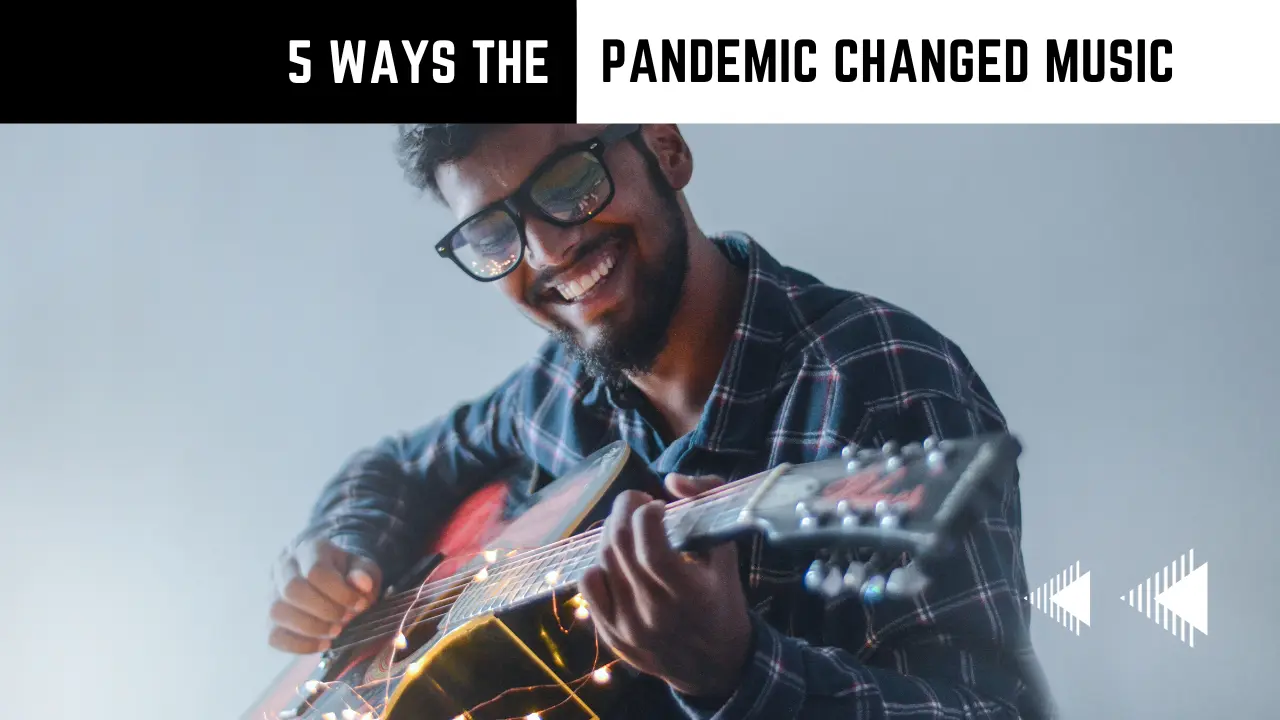
The pandemic did a number, no pun intended, on musicians. As COVID-19 shut down the world, creatives suddenly faced a landscape that limited their avenues to get work. This would require some quick changes to adapt to the “new normal”. Even as the world has opened back up, certain practices have stayed on as a result of such irrevocable steps forward.
The United Nations Conference on Trade and Development broke down its effects on music quite thoroughly. While digital platforms saw a sharp increase (music streaming in the UK shot up to $1.3 billion in revenue), live music events saw a huge downturn (with a 54% value decline in the music industry internationally.)
During this time, Nashville surveyed artists and found that 74% of musicians experienced unemployment due to the pandemic. So, it spurred many changes in how musicians sought to make money.
1. Going Live on Socials
Since performances largely weren’t happening in person, musicians had to turn to the most accessible way they could connect with audiences - social media. Through various social networking sites, musicians are able to post videos, stream performances live, and potentially get brand partnerships to pay them for certain ad reels or sponsored content.
Influencer marketing has been a viable avenue since the dawn of socials, but the pandemic only served to make this even more profitable. A Criteo study highlighted a 67.7% increase in likes for Instagram influencers as more people wanted to find ways to connect while being stuck at home. Even as venues return to form, musicians now have consistent online content to not only build their audience but also earn remotely.
2. Musician-Centric Platforms
The pandemic lasted years, so it was still a struggle for musicians to find decent gigs while the world was recovering. Even when full lockdown was no longer in effect, there was a need for online platforms that put the power in the hands of artists. This way, they would not be stuck without any bookings for an extended period of time.
This would lead to the popularity of musician-centric platforms like Function Central, which connects wedding bands for hire with users who are looking to hire bands for events. While this may seem to be customer-focused, it actually prioritizes artists as it uses a vetting process to ensure that musicians stay booked and only get legitimate events.
3. Online Tipping Culture
If you’ve ever watched some free content online from a creator, you’ve likely heard them asking you to buy them a Ko-fi or join them on Patreon. This is because crowdfunding has been a huge source of cash for musicians who want to produce their own music while staying independent. These platforms also open up opportunities to sell merchandise.
It’s basically a digital translation of tipping culture, allowing fans to directly send money to the musicians they want to support. The advantage of these platforms is that they are not region-locked, so musicians have been able to use them to earn from fans across the world.
4. The Push for Side Hustles
The pandemic also made it necessary for many musicians to take on other jobs that may not involve directly performing as they usually do. After all, bills and responsibilities don’t wait around for lockdowns to lift.
The best side jobs for musicians to pop out since 2020 have still made use of their existing talents and skill sets. Plenty of small artists have kept themselves afloat by selling beats, creating online courses, and teaching music to students online. These side hustles have continued to prove fruitful as musicians aim to have steady streams of income while pursuing their main artistic goals.
5. Independent Streaming
Streaming music has been the lifeblood for many independent artists trying to make money. Nowadays, musicians can directly earn from posting their music on Spotify, Bandcamp, Apple Music, Youtube, and other similar platforms. It’s even more promising if they are able to go viral with accompanying apps like TikTok.
Although music consumption actually went down during the pandemic, the restrictions imposed on artists still made this an essential adjustment to earn money. Uploading your music to Apple Music is actually a very simple process, and it automatically opens you up to a wider audience of up to 68 million users. Hence, many musicians have put their work up in the hopes of at least getting recurring payouts.
From a Frustrated Producer in a Ragtag Bedroom Studio to Major Placements on TV Earning $1,000s!
My name is Evan, and I've been making music since around 3rd grade. I'm from San Diego, California, but I've lived in Washington, DC for the last 20 years.
While I still have a full-time day job, I have created systems that have allowed me to produce dozens of songs a year in my spare time.
My songs have been on Netflix, TV shows like the 90 Day Fiance, an award-winning indie film, and NPR’s “All Thing Considered.” They've also been streamed millions of times.
In addition to being a music producer, I am passionate about teaching people how they can make professional-sounding music and earn money licensing it, all in their spare time.
Thousands of musicians, like yourself, have trusted me to guide their musical journey. My YouTube videos have been watched nearly a million times. And my story has been in Forbes, Side Hustle Nation, and the Side Hustle School.





